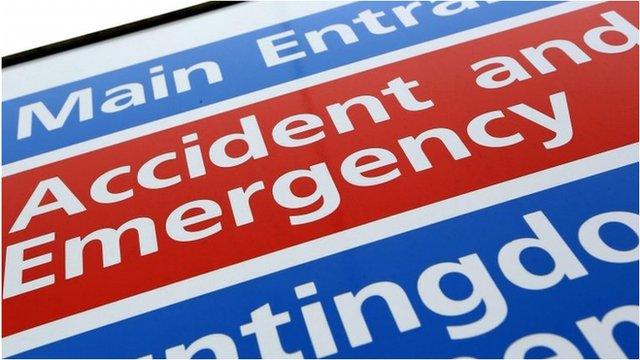Long A&E waiting times in Wales 'affecting policing'
- Published
BBC Wales' Caroline Evans went on the road with an ambulance crew to see the pressures they face
Longer waiting times at A&E are having a major impact on policing in some parts of Wales, a police and crime commissioner says.
Dyfed-Powys's Christopher Salmon said officers were taking people to hospital when there were not enough ambulances.
It comes as only 81% of patients were treated within four hours at A&E units in December. The target is 95%.
The Welsh government said hospitals were seeing a high number of patients.
Mr Salmon said police taking patients to hospital was a long-running problem that had "got significantly worse".
"Our initial analysis suggests we had twice as many incidents this December as last," he said.
"That means more police officers waiting in A&E, officers conducting at-scene medical assessments beyond their expertise and officers leaving their duties to drive patients to hospital."
Luigi Segadelli's teammates had to cover him with blankets to protect him from the cold
The Welsh Ambulance Service chief executive Tracy Myhill admitted the situation was impacting on ambulances, with too many waiting outside hospitals.
The A&E figures are the worst since October 2009, which is when the data started being collated in its current format.
In total 76,889 people went to A&E in December, compared to 75,049 in December 2014.
The proportion of patients treated within four hours at Wales' major hospitals, where the majority of emergency cases are dealt with, was 77.2%.
The best-performing major incident A&E department was Bronglais in Aberystwyth, while the lowest figure was 65.6% at Wrexham's Maelor hospital.
Welsh College of Emergency Medicine chair Mark Poulden said an increase in the number of "sick, complex patients" was impacting other hospital services, with some cancer operations cancelled.

How the ambulance service can help
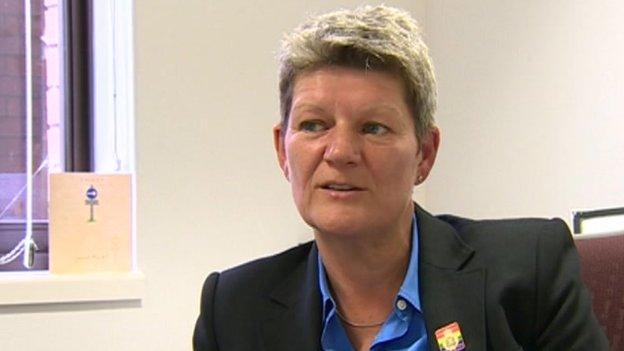
Tracy Myhill says the ambulance service is going through changes
Tracy Myhill, chief executive of the Welsh Ambulance Service NHS Trust, said the trust was working with health boards to ensure only critically ill and emergency patients end up in hospital.
One initiative is to train paramedics to have more advanced skills so they can treat more casualties at home or at the scene of an accident.
Another is to take doctors and nurses with a paramedic in a rapid response vehicle to help a patient away from hospital.
The trust is also working to ensure more patients are taken to minor injury units or to other non-emergency medical centres.

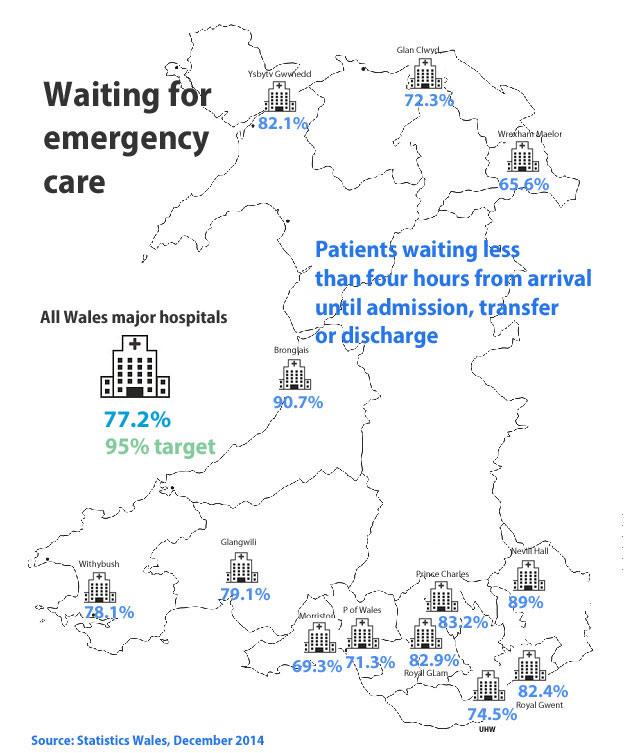

Analysis: Owain Clarke, BBC Wales health correspondent
Senior staff on the frontline of the Welsh NHS tell me that what is making this winter so difficult is that they are dealing with a huge increase of severely ill patients at a time when hospitals are already full.
I'm told, for example, there has been a bout of severe respiratory viruses circulating in this winter.
Combined with that, you could argue, the NHS is also a victim of its own success - people are living longer - that's a good thing - but often they need more complex medications to treat more complicated health problems.
But the difficulty comes when those patients need hospital treatment - it takes longer to treat them in a system that increasingly looks as if it's struggling to cope - and not just in winter.

The Welsh Conservatives said Labour ministers in Cardiff had run Wales' health service "into the ground".
The Conservative leader in Wales, Andrew RT Davies, said: "The winter period is always the most difficult for emergency services, but having had one of the mildest winters on record there is literally nowhere for Labour to hide."
Welsh Liberal Democrat leader Kirsty Williams called for a commission, including members from the main political parties, to examine how the Welsh health service could "meet the severe challenges it faces".
A&E consultant Dr Aruni Sen said the pressure of work was forcing staff to leave
The Welsh government said it had the highest number of attendances per day for any December since 2009.
Deputy Health Minister Vaughan Gething said an extra £40m announced on Thursday would help the NHS deal with winter pressures.
"This means we have invested a further quarter of a billion pounds in the Welsh NHS in 2014-15 to continue to deliver high-quality, sustainable health services," he said.
England has the same 95% target as Wales but figures are published weekly during winter. Its latest data stood at 89.8%.
- Published15 January 2015
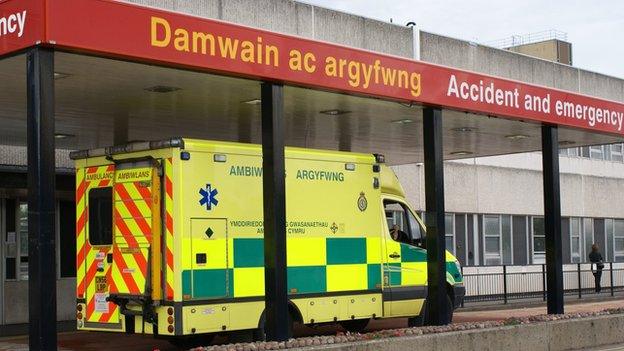
- Published13 January 2015
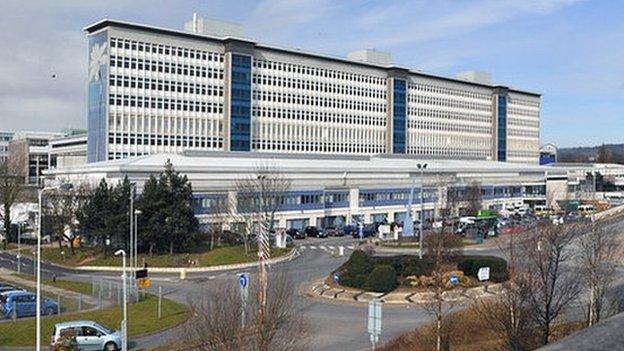
- Published12 January 2015
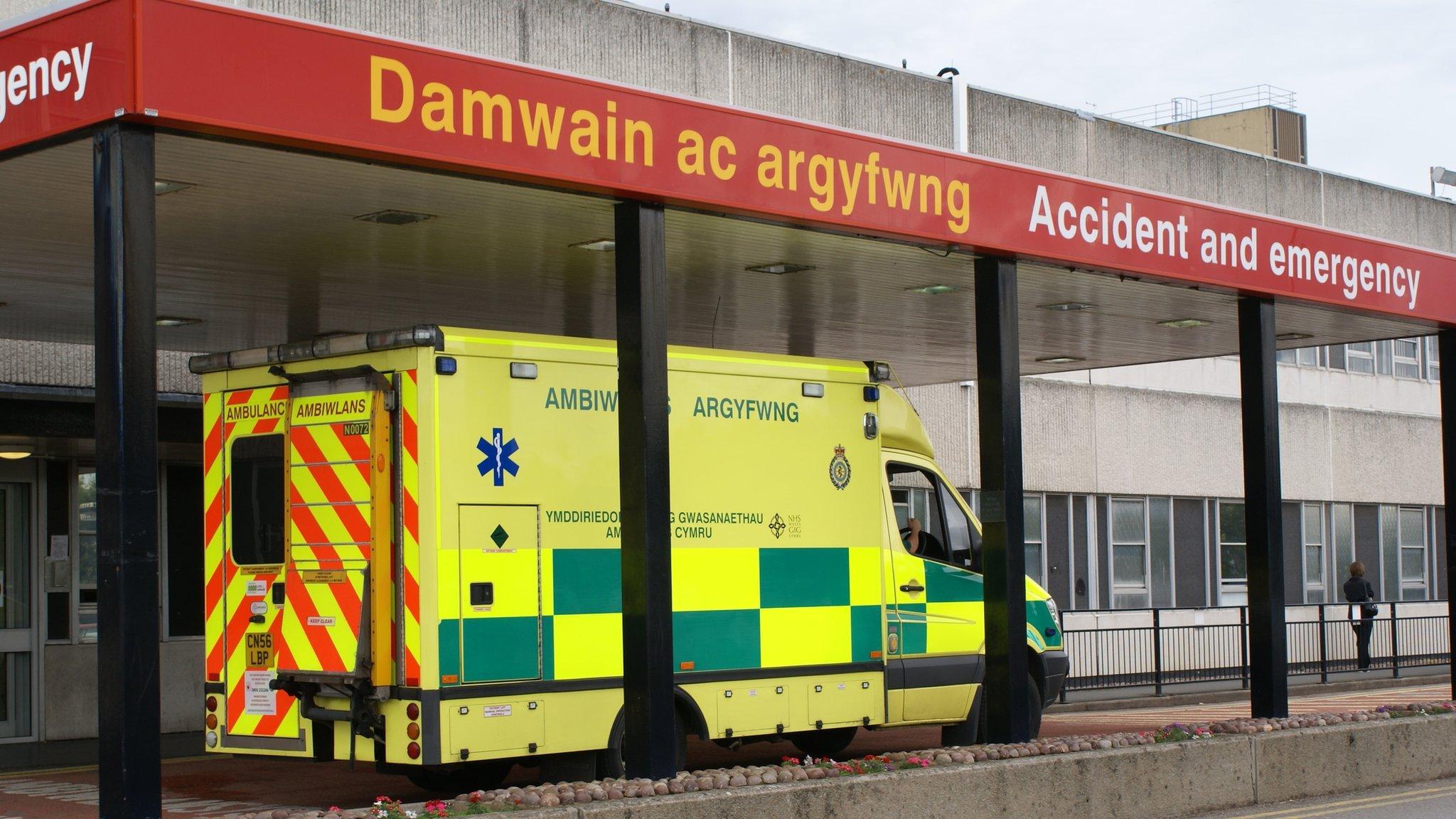
- Published7 January 2015
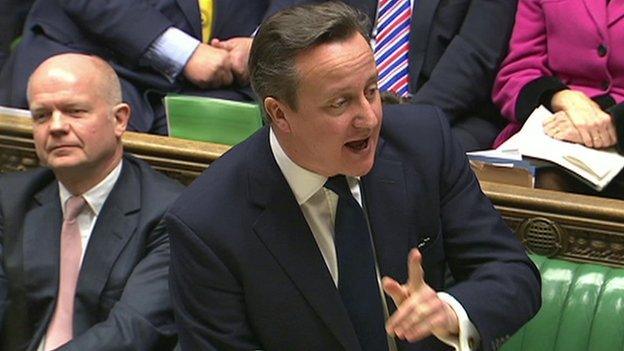
- Published9 May 2014
